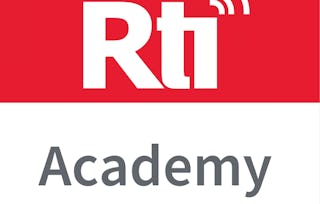The Diplomatic Practice course provides a comprehensive understanding of the evolving landscape of international relations. You'll explore negotiation techniques, the role of embassies and diplomats in safeguarding national interests, and the impact of globalization and technology on modern diplomacy. Discover the nuances of political, economic, and cultural diplomacy, along with emerging trends like diaspora and para diplomacy. Analyze the rise of hybrid diplomacy in a post-pandemic world.
即将结束: 只需 199 美元(原价 399 美元)即可通过 Coursera Plus 学习新技能。立即节省

您将学到什么
Evaluate digital tools and social media’s impact on diplomacy; propose strategies for blending them with traditional diplomatic practices.
Analyze how economic diplomacy compares to political and cultural diplomacy in different geopolitical contexts.
Create a diplomatic strategy for a current issue, integrating political, economic, and cultural diplomacy for foreign policy objectives.
Synthesize historical and modern diplomatic practices to develop innovative hybrid approaches addressing globalization and digital challenges.
您将获得的技能
要了解的详细信息

添加到您的领英档案
7 项作业
了解顶级公司的员工如何掌握热门技能

该课程共有7个模块
This module introduces the realm of Diplomatic Practice, exploring how states interact on the world stage. You'll delve into the concept of international relations, the legal definition of a state, and the significance of national interest in shaping foreign policy. Using the United States and India as examples, you'll examine how nations utilize negotiations to achieve their objectives. Finally, the module analyzes the challenges of modern diplomacy in a shifting global landscape.
涵盖的内容
13个视频7篇阅读材料1个作业1个讨论话题
This module explains how embassies (or high commissions) work as the primary hubs of diplomacy. You'll learn about their structure and operations, as well as the role of consulates in serving citizens abroad and increasingly in economic and cultural diplomacy. The module also covers Cultural and Trade Centers' contributions to diplomacy. Finally, you'll learn about alternative representation when two countries lack formal diplomatic relations, such as interest sections within a third country's embassy or the appointment of Honorary Consuls.
涵盖的内容
14个视频2篇阅读材料1个作业1个讨论话题
This module provides an overview of professional diplomatic services, focusing on the role of ambassadors and the process of becoming a diplomat, including recruitment, training, and diplomatic privileges outlined in the Vienna Conventions. It also examines the privileges of consulates and future trends in diplomacy.
涵盖的内容
12个视频3篇阅读材料1个作业1个讨论话题
This module explores different levels of diplomacy: bilateral, plurilateral, and multilateral. It explains Track 1 (government-to-government), Track 2 (think tanks and institutions influencing governments), and Track 1.5 (a mix of both). You'll learn how non-governmental actors like think tanks, universities, and NGOs are playing a growing role in diplomacy. Finally, the module examines the role of Chambers of Commerce in economic diplomacy and the influence of multinational corporations and lobbies on state diplomacy.
涵盖的内容
12个视频4篇阅读材料1个作业1个讨论话题
This module explores the interplay between political and economic diplomacy. You'll examine traditional political diplomacy tools like dialogue mechanisms, the role of foreign ministries and embassies, and the significance of summit diplomacy and state visits. The module also delves into economic diplomacy, covering free trade agreements, the World Trade Organization, and the geopolitical implications of initiatives like the Belt and Road Initiative and 5G technology.
涵盖的内容
12个视频2篇阅读材料1个作业1个讨论话题
This module explores the significance of a state's culture in international relations, highlighting cultural diplomacy and the role of institutions like India's ICCR. It delves into Joseph Nye's concept of "Soft Power" and its impact on public diplomacy, while acknowledging the challenges in measuring this power across diverse nations. The module also examines the growing influence of diasporas and their impact on state interests. Finally, it discusses the increasing role of subnational actors, such as provinces or states, in shaping diplomatic relations within federal systems.
涵盖的内容
12个视频2篇阅读材料1个作业1个讨论话题
This module explores the evolution of diplomacy, from traditional practices to the challenges of modern digital diplomacy in the age of instant communication and social media. It examines issues of sovereignty, secrecy, and trust raised by digital diplomacy, and the impact of COVID-19, highlighting both the limitations and necessities of virtual diplomacy. Finally, it emphasizes the need for today's diplomats to possess both expertise and adaptability, combining speed and substance in communication, while maintaining credibility in the media landscape.
涵盖的内容
12个视频4篇阅读材料1个作业1个讨论话题
攻读学位
课程 是 O.P. Jindal Global University提供的以下学位课程的一部分。如果您被录取并注册,您已完成的课程可计入您的学位学习,您的学习进度也可随之转移。
位教师

从 Governance and Society 浏览更多内容
 状态:预览
状态:预览University of London
 状态:预览
状态:预览National Taiwan University
 状态:预览
状态:预览Birla Institute of Technology & Science, Pilani
 状态:预览
状态:预览University of London
人们为什么选择 Coursera 来帮助自己实现职业发展




学生评论
11 条评论
- 5 stars
100%
- 4 stars
0%
- 3 stars
0%
- 2 stars
0%
- 1 star
0%
显示 3/11 个
已于 Feb 15, 2025审阅
This class is what I thought it was very precise, full of great information. The instructor is amazing. I learned a lot in this class. I definitely suggest this class.
常见问题
To access the course materials, assignments and to earn a Certificate, you will need to purchase the Certificate experience when you enroll in a course. You can try a Free Trial instead, or apply for Financial Aid. The course may offer 'Full Course, No Certificate' instead. This option lets you see all course materials, submit required assessments, and get a final grade. This also means that you will not be able to purchase a Certificate experience.
When you purchase a Certificate you get access to all course materials, including graded assignments. Upon completing the course, your electronic Certificate will be added to your Accomplishments page - from there, you can print your Certificate or add it to your LinkedIn profile.
Yes. In select learning programs, you can apply for financial aid or a scholarship if you can’t afford the enrollment fee. If fin aid or scholarship is available for your learning program selection, you’ll find a link to apply on the description page.
更多问题
提供助学金,



